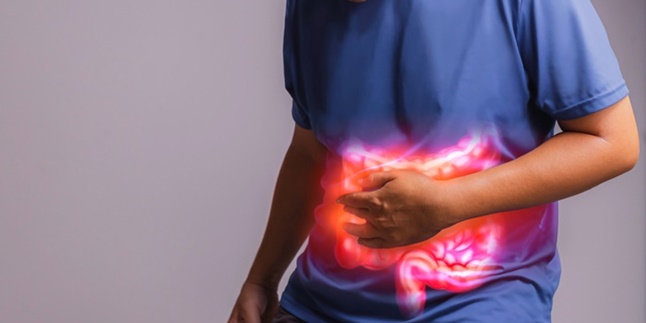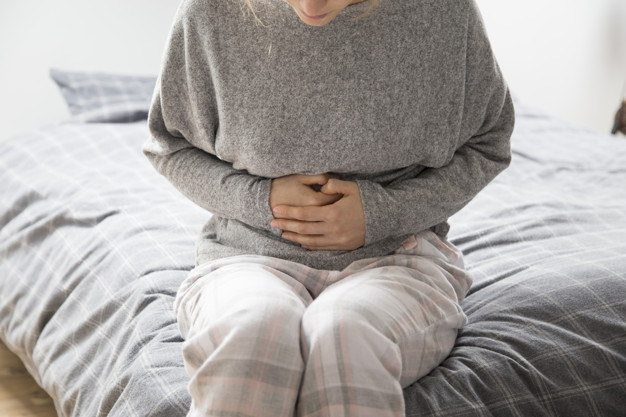68 Fun Travel Quotes, Motivating You to Step Forward
There are various types of journeys that help you become wiser in facing life's problems. Let's take a look at the following explanations, KLovers!

Kapanlagi.com - The digestive system plays a significant role in influencing a person's health condition. Therefore, digestive health needs to be taken care of. Moreover, the digestive organs often experience various disorders. Therefore, it is important for us to know the types of digestive disorders and their causes.
By knowing the types and causes, digestive disorders will be easier to prevent and treat. As a result, digestive health will also be better maintained. Indirectly, this will also enable the digestive organs to function optimally.
So, what are the types of digestive disorders and their causes? To find out more, read the discussion that has been summarized from various sources below.

(credit: freepik)
Maag becomes one of the diseases suffered by quite a lot of people. When experiencing maag, we will feel several symptoms ranging from bloated stomach, nausea, loss of appetite, and even vomiting.
Maag occurs due to disturbances in the digestive system. Specifically, this is caused by an infection of a bacterium named Helcobater pylori. This infection causes ulcers in the digestive organs. In addition, maag can also recur due to various factors such as irregular eating, stress, and consumption of spicy foods.
GERD or Gastroesophageal reflux disease (GERD) is also a familiar digestive disease. GERD occurs when stomach acid rises into the esophagus, causing irritation to the esophageal lining. Generally, GERD sufferers will experience several symptoms, ranging from a burning sensation in the chest, nausea, sore throat, difficulty swallowing food, and so on.
Gastritis may not be as common as GERD or stomach ulcers. However, gastritis is also a type of digestive disorder and its causes need to be known. This digestive disorder can be experienced by anyone.
In general, gastritis is also known as inflammation of the stomach. This inflammation is caused by stomach acid and pepsin enzymes that irritate the stomach lining. Symptoms commonly experienced by gastritis patients include discomfort in the stomach, headaches, and difficulty breathing. Gastritis can be triggered by bacterial infections, alcohol consumption, allergies, and poisoning.

(credit: freepik)
Almost everyone has experienced diarrhea at some point. When experiencing diarrhea, the digestive system cannot function properly and smoothly, resulting in an uncontrollable frequency of bowel movements. Although often underestimated, diarrhea can be a chronic health problem. Therefore, it is important to know the type and causes of this digestive disorder.
Diarrhea is often accompanied by cramps or abdominal pain, nausea, fever, and dehydration. There are many things that can cause someone to experience diarrhea. Some of them include bacterial or viral infections, consumption of certain foods and drinks, allergies, and so on.

(credit: freepik)
Contrary to diarrhea, constipation is a digestive disorder that causes difficulty in passing stool. Similar to diarrhea, constipation is also very distressing. Generally, constipation is caused by a lack of fiber intake. In addition, lack of exercise, insufficient water consumption, and pregnancy can also cause constipation.
The next digestive disorder and cause to be aware of is hemorrhoids or piles. Hemorrhoids occur when blood vessels at the end of the anus swell. As a result, the sufferer will experience pain and discomfort during bowel movements.
Some factors that can cause hemorrhoids include insufficient consumption of fiber-rich foods, lack of water intake, lack of exercise, and excessive straining.

(credit: freepik)
The appendix is a small, thin pouch, measuring about 5 to 10 cm in length, that is connected to the large intestine. However, the term 'appendix' refers to the inflammation that occurs in this organ. The appendix can be caused by several factors such as blockage at the entrance of the appendix, blockage by feces, abdominal injury, and the emergence of tumors.
When experiencing this condition, patients will feel pain in the lower abdomen. In addition, the appendix is also accompanied by symptoms such as loss of appetite, nausea, fever, diarrhea, bloating, pain during urination, and abdominal cramps.
In addition to the stomach and intestines, digestive disorders can also occur in the gallbladder. The gallbladder is a body organ that serves to store fluid, which is then passed on to the small intestine.
When digestion is disrupted, the fluid is not properly channeled. As a result, the fluid can accumulate and even form stones. According to liputan6.com, some of the factors that can cause gallstones include excess cholesterol and bilirubin.

(credit: freepik)
Irritable Bowel Syndrome or irritable bowel syndrome is also a type of digestive disorder and its causes that you need to know. This digestive disease is caused by gastrointestinal infections and food poisoning. Irritable Bowel Syndrome digestive disorder causes sufferers to experience stomach pain, accompanied by constipation or diarrhea. In addition, some people also experience bloating.
Those are among the 9 digestive disorders and their causes that you need to know. Hopefully, it is useful and can inspire you to take better care of your health!
(kpl/psp)
Cobain For You Page (FYP) Yang kamu suka ada di sini,
lihat isinya
There are various types of journeys that help you become wiser in facing life's problems. Let's take a look at the following explanations, KLovers!
Birthday words for a girlfriend can be a simple but special gift. Because, these words are not just ordinary sentences or greetings. In them, we can express the deepest feelings for our girlfriend.
Although decades have passed, Soekarno is still an admired figure. It is evident that various quotes and sayings by Soekarno are highly sought after.
Being single is not a status to be worried about. Because everyone certainly has their own time to meet their life partner. Let's take a look at the following words, Klovers!
There are people who can't fall asleep immediately even though they feel tired. If this habit is not addressed immediately, a person will become even more tired and may appear more melancholic every day. Therefore, you need to pay attention to several things that need to be done before bed.
Anything consumed excessively will certainly have a negative impact on health. One of them is excessive consumption of coffee can cause addiction. Let's find out how to quit it KLovers!
Whether realized or not, this condition often triggers intense emotions that make you angry, annoyed, and disgusted. Let's take a look at these words of disgust towards someone KLovers.
Dreams make someone's life more passionate. Dream quotes can be one way to ignite the spirit in achieving what is desired in life.
The anniversary of the start of a relationship or anniversary is a special day. Giving short anniversary wishes to your partner can make that special day even more special.
Blurry vision is a common visual impairment that can be experienced by anyone. Therefore, it is important to know the causes of blurry vision. By doing so, we can take preventive measures.
Inspiration from coffee is now expressed in the form of words. One of them is funny coffee quotes that entertain and can make you laugh.
When faced with complex problems in life, the only way to find peace is to draw closer to God. Let's check out the following spiritual words, KLovers!